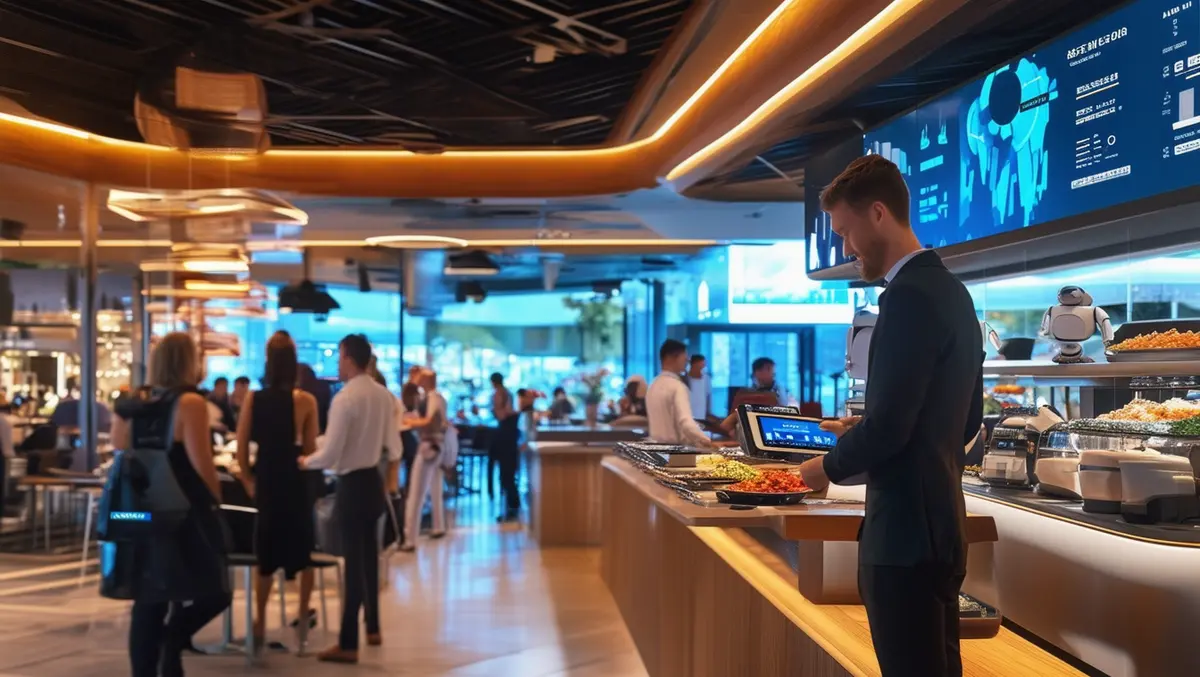
Australian hospitality sector embraces AI to enhance efficiency
Australian hospitality businesses have significantly embraced artificial intelligence (AI) and automation, according to a recent report by SevenRooms. The Restaurant Trends and Diner Expectations report shows that 85% of hospitality operators in Australia are leveraging AI to improve efficiency, cut costs, and enhance the overall guest experience.
Paul Hadida, Managing Director for APAC GTM at SevenRooms, commented on the findings, stating, "Even as economic pressures persist, restaurants, bars and cafes are cementing themselves as a third place—somewhere a person spends time besides home or work—that people crave. We found that when restaurants really get to know their customers while offering great experiences and value, people will prioritise them over their competitors."
The report highlighted a variety of ways in which AI is being applied within the industry. The most prevalent applications include data analytics and inventory management, each used by 36% of venues. Other notable uses include devising menu items (29%), scheduling (26%), staff hiring and training (25%), and dynamic pricing (25%). These efforts are part of a broader strategy to increase revenue and reduce operational costs, which are top priorities for operators heading into 2024.
According to the report, reservations at Australian restaurants have risen by 26% year-over-year from Q1 2023 to Q1 2024. Australians are increasingly prioritising high-value, high-quality dining experiences. One in six Australians is willing to spend between AUD $150 and AUD $450 per person for a meal out, indicating a clear shift towards more luxurious and personalised dining experiences.
Key data from the SevenRooms platform also revealed that reservations involving prepayments for special events or unique experiences attract 35% more revenue compared to standard reservations. Australian restaurants reportedly generated more than AUD $50,000 in revenue per venue from such upgrades.
Guest experience has proven to be a significant factor in driving repeat business. "When analysing the factors that encourage people to return to restaurants and choose them as a third place, guest experience, upgrades, and personalisation are critical—and consumers are willing to spend more for them," noted Hadida.
Generational differences in dining habits were also examined. Gen Z accounts for the most frequent diners, with 26% eating out more than five times per month and 41% doing so 3-4 times monthly. In contrast, 66% of Gen X and Baby Boomers prefer eating at home, dining out only once or twice a month. Despite varying frequencies, the desire for convenience, personalisation, and value remains consistent across generations.
Robert Squillacioti, Chief Marketing Officer at Solotel, emphasised the importance of evolving guest experiences amidst economic pressures. "We know that our customers are contending with economic pressures and are being more intentional with their spending. To secure their patronage and earn their loyalty, we must continue to evolve and offer improved guest experiences," he said. As an example, Squillacioti highlighted a successful Veuve Clicquot upgrade introduced at North Bondi Fish, which led to a significant boost in sales.
Younger consumers tend to value personalised surprises such as birthday or anniversary gifts more than their older counterparts. According to the report, men are 73% more likely than women to care about building a rapport with restaurant staff, while women place higher importance on atmosphere and ambience.
AI's role in hospitality extends beyond augmenting guest experiences. Kylie Moncur, Chief Marketing Officer at Australia Venue Co., explained that their AI-assisted solutions help team members digest information more easily and find actionable insights. "In the future, team members will be able to ask questions in natural language, and the tool will pinpoint the relevant data source, identify the specific problem, and offer actionable solutions," she noted.
Spontaneity appears to be a growing trend, with 53% of reservations made on the day of dining and 23% of restaurant business coming from walk-ins. This preference for immediate dining plans is prevalent across various demographics, further emphasising the need for flexibility and adaptability in the hospitality industry.


